Across Europe and Central Asia (ECA), productivity has been running below its potential for over a decade, failing to power consistent economic growth in the region. Despite decades of market transition, reforms, and integration into global value chains, the region’s productivity trajectory flattened after the 2008 global financial crisis. How can ECA economies ignite productivity growth to achieve competitiveness amid rapid technological shifts, geopolitical uncertainty, and demographic change?
At the recent Igniting Productivity Growth: TIDES of Change event, the Wheeler Institute for Business and Development at London Business School hosted a panel discussion moderated by Rajesh Chandy, Professor of Marketing, Tony and Maureen Wheeler Chair in Entrepreneurship and Co-Academic Director of the Wheeler Institute at LBS, joined by Asad Alam, Regional Director for Europe and Central Asia in the World Bank’s Prosperity Vice Presidency, Cecile Thioro Niang, Practice Manager, Finance, Competitiveness and Investment, Europe and Central Asia and Fabian Scheifele, economist in the World Bank’s Finance, Competitiveness and Investment unit for the Europe and Central Asia region.
The discussion built on the World Bank’s latest flagship report, TIDES of Change, an analysis of over 40 million firm-level observations across 16 ECA countries. Its findings reveal both the drivers of productivity growth and the untapped potential when the right policy levers are activated.
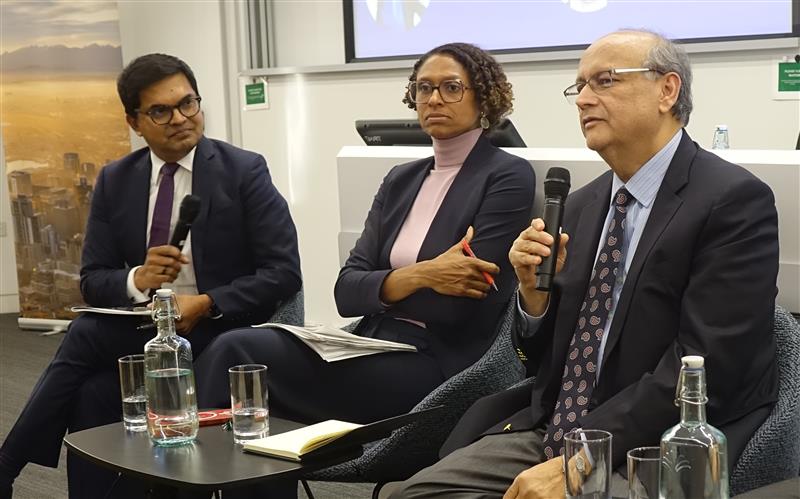
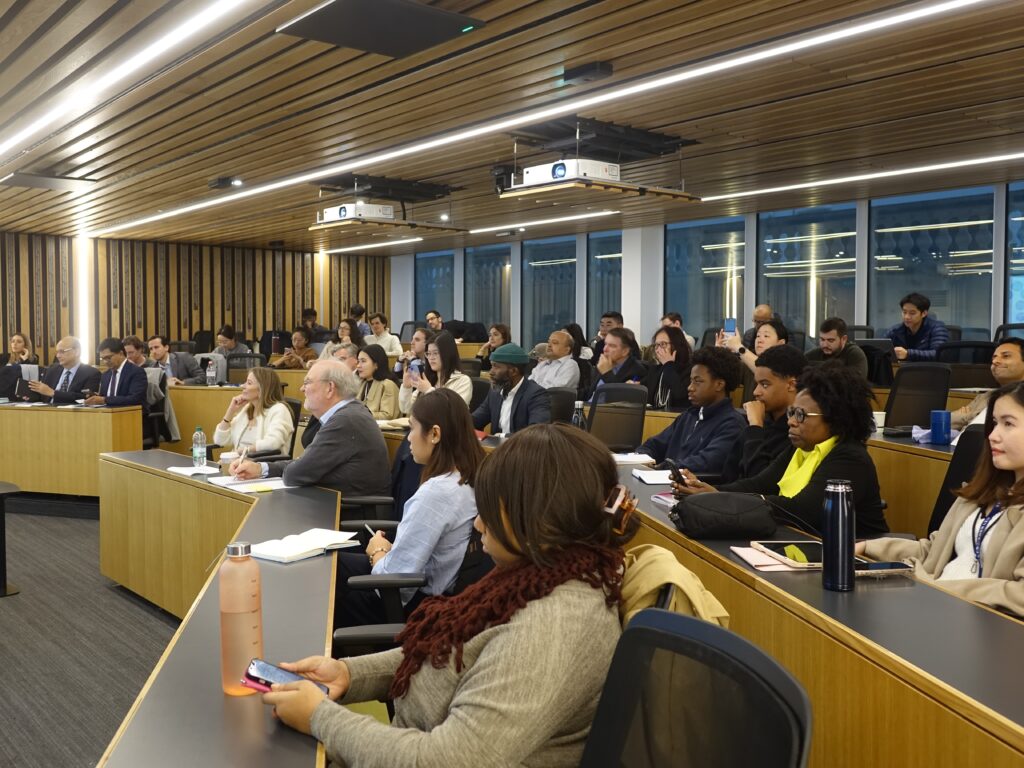
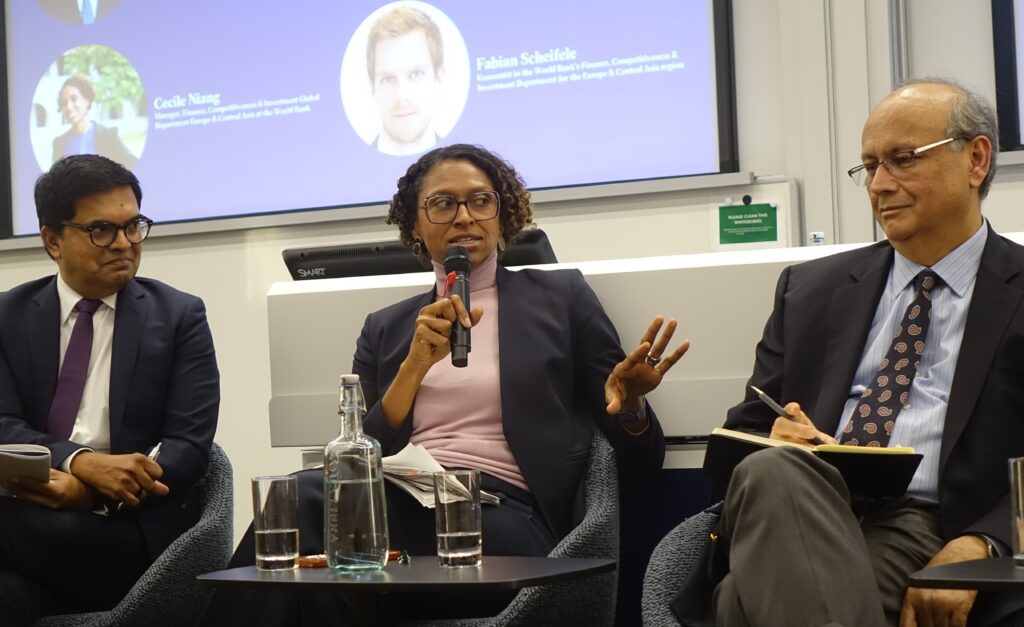
The region’s productivity slowdown
Since the 2008 global financial crisis, ECA’s productivity growth has halved. Although many countries have seen investment rebound, total factor productivity has stagnated or declined. The report estimates that ECA countries could have been 62% wealthier today had pre-crisis productivity trends continued.
However, simply accumulating more investments will not be sufficient, since ECA’s efficiency of turning capital into more output has declined. As emphasized during the presentation, productivity is about how effectively countries use their resources, and too much of that potential remains locked in the region.
TIDES: A Framework for Renewal
The World Bank report summarises the pathway to more productivity growth through the TIDES agenda, which connects five reform pillars and productivity levers:
- Trade: Realizing untapped export potential and deepen integration with global value chains.
- Investment: Mobilizing more foreign direct investment and amplify spillovers to domestic firms
- Digitalization: Diffuse frontier technologies, strengthen capabilities and deepen effective use
- Efficiency: Levelling the playing field, promote fair competition and unleash market reallocation.
- Skills: Aligning human capital with market needs through upgraded education systems and lifelong learning.
Each pillar reinforces the others: trade and investment expand market opportunities; digitalization and skills amplify firm capability; efficiency reforms ensure resources flow to their best use. The TIDES strategy provides a coherent reform agenda, a blueprint for igniting growth and ensuring shared prosperity across Europe and Central Asia. Harnessing the full force of these “TIDES of change” will determine whether the region can convert its latent potential into lasting productivity gains.
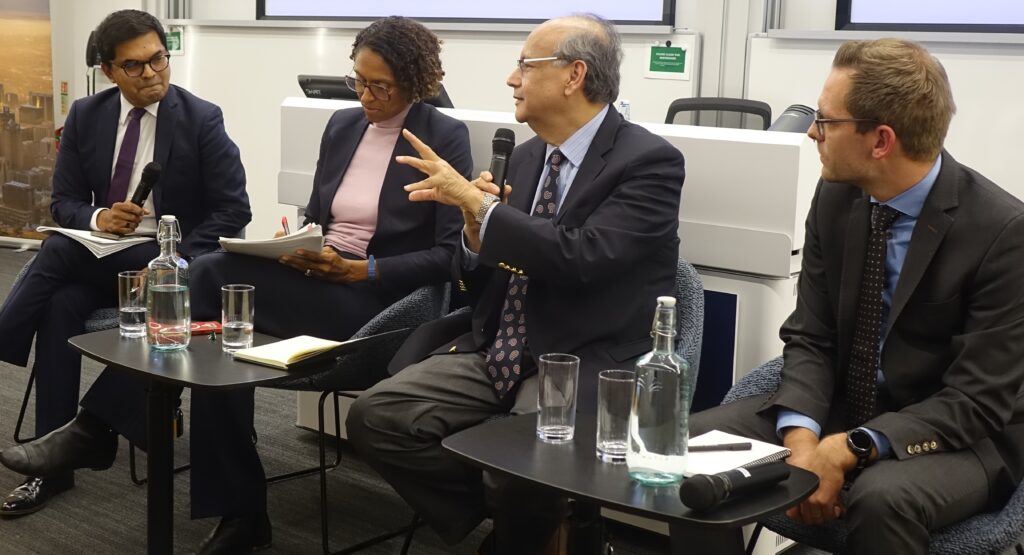
Trade and Investment: Unlocking External Drivers
Trade and foreign investment are critical yet unrealised drivers of productivity. Exporting firms are few but powerful: in Croatia, fewer than 20% of firms export, yet they account for 50% of value added and nearly 60% of wages. Across the region, many economies large amount of untapped trade and investment potential that could dramatically boost incomes.
For lower-income markets like Tajikistan or the Kyrgyz Republic, the report estimates that closing the FDI gap could increase total investment by as much as 80%, equivalent to $1.5–2 billion in new inflows. But realizing these opportunities requires deepening lower trade costs, facilitating value chain integration and improving the transparency and predictability of investment environments.
Digitalization: A lever to boost productivity
Digital technologies offer powerful lever for boosting productivity, but adoption and use is uneven. Most firms in ECA have access to digital tools, but intensive use and effective integration in business function remains limited. The report estimates that converging to the EU average in terms of digital adoption could boost productivity by 6-8%.
Managerial capabilities emerge as a key enabler for digital adoption. Firms with digitally competent managers are far more likely to use technology effectively. Equally critical are worker skills and market access. However, there is a risk of an increasing digital divide between frontier economies in Western Europe and the ECA region if they do not invest more in their digital capabilities.
Public policy can mitigate that divide. Countries such as Estonia and Georgia have demonstrated how digital public services such as electronic IDs, e-governance, and online procurement, can reduce corruption and equalize access. Digitalization in public services is a great equalizer; it improves daily life and empowers citizens.
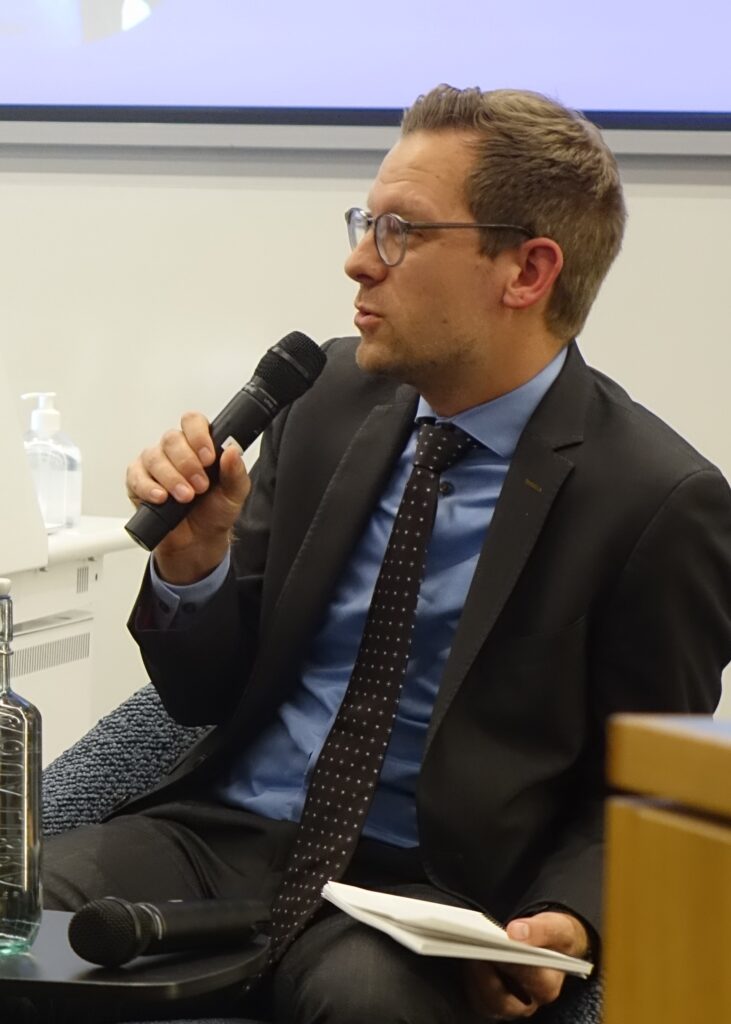
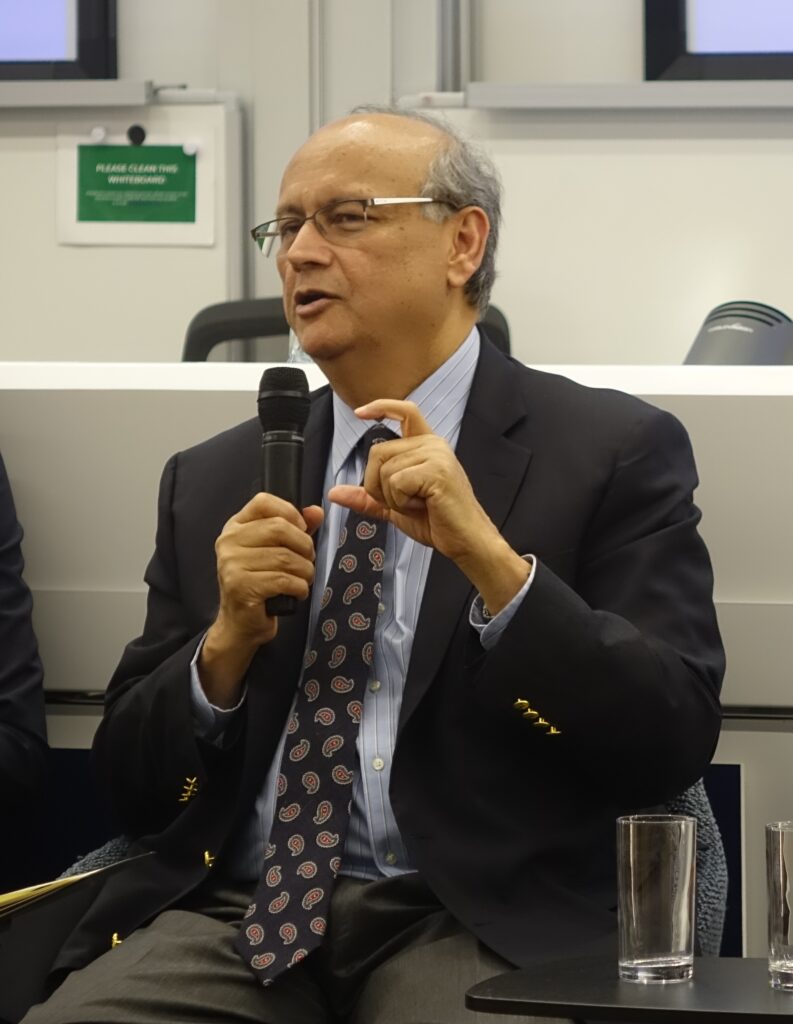
Efficiency of Markets and the Anatomy of Misallocation
Another critical finding of the study is the resource misallocation across firms. In efficient economies, productive firms attract more capital and labour. However, the opposite occurs in ECA as factors of production often flow not to the most productive firms, dragging down the regional growth potential. World Bank estimates reducing these distortions to advanced-economy levels could lift aggregate productivity by 10–70%. The report identifies four drivers underlying this misallocation:
- State-Owned Enterprises (SOEs): Despite decades of transition, SOEs remain pervasive and are on average 40% less productive than private counterparts. Yet they continue to receive preferential access to finance and procurement contracts, and their dominance suppresses competition and innovation.
- Credit Misallocation: Financial systems frequently direct subsidized credit to SOEs and less productive firms. Redirecting finance toward high-performing firms could yield significant productivity gains.
- Labor and Skills Misallocation: Skilled workers are not necessarily employed by the most productive firms. Unlike in frontier economies such as the U.S., ECA shows little concentration of skilled labour in larger, more efficient companies.
- Public Procurement: Non-competitive bidding processes disproportionately benefit SOEs and other large incumbents, limiting young firms and new entrants to benefit from this growth channel.
Together, these factors help explain why many ECA firms, even as they age, do not scale up or create more jobs. Some firms just remain small and never exit, and the question is whether these are the firms that governments should continue to support.
Skills and Human Capital: Closing the Gap
Despite impressive progress in tertiary education, ECA still faces a pronounced skills mismatch with weak linkages between education systems and labour market needs. Many workers are overqualified for their jobs, while employers struggle to find candidates with the right digital and managerial skills. Foundational competencies including literacy, numeracy, and problem-solving remain below Western European standards, eroding potential productivity gains.
This mismatch results in a workforce that is formally educated but not always effectively equipped, lowering productivity and wages growth. Firms also cite managerial skill gaps as a key barrier to digital adoption and export competitiveness. Strengthening technical education, embedding lifelong learning, and integrating digital literacy into national curricula is essential to align human capital with economic transformation.
Harnessing the Tides: A Call to Action
The panel discussion closed with a clear call to action: Governments must remove structural distortions, level the competitive playing field, and create environments where innovation thrives. Deeper trade and investment integration will be essential to tap external markets and attract knowledge spillovers. At the same time, education systems must expand digital and AI literacy, foster lifelong learning, and link curricula to labour market needs.
A message of hope resulting from the report is that the potential can be so much higher with the right set of policies. Evidence in ECA region already show what can be achieved through the right reforms: Post-2017 liberalization reforms have boosted productivity in Uzbekistan, illustrating that policy choices matter; Early investments in AI education in Kazakhstan and digital governance in Albania show that forward-looking initiatives can yield dividends.
For the region, the TIDES framework provides both a compass and a sense of urgency: to act decisively, to coordinate across institutions, and to align education, technology, and policy around a shared vision of inclusive prosperity. The tides of change are rising; Europe and Central Asia’s challenge is not to resist them, but to harness their force to build a more productive and resilient future.
About the speakers

Asad Alam is the Regional Director for Europe and Central Asia for the World Bank’s Prosperity Vice Presidency. Prior to this, Asad was the Regional Director for Eastern and Southern Africa for EFI. He earlier served as Chief of Staff to the President of the World Bank Group; Country Director for Egypt, Yemen, and Djibouti; Country Director for Southern Africa; Country Director for the South Caucasus; Sector Manager in Eastern Europe and Central Asia, and Country Economist in various countries. Asad has written on various subjects including growth, productivity, governance, poverty, inequality, trade, and fiscal issues. He holds a doctorate in economics from Columbia University.

Cecile Niang is a dual Senegalese and French national, she is a Manager for Europe and Central Asia for Finance, Competitiveness & Investment Global Department at the World Bank Group. She held this post previously on East Asia and the Pacific from 2020 to 2024. Since joining the Bank in 2004, she has held various positions working on long term infrastructure finance, climate finance, financial inclusion; firm capabilities and innovation; markets and technology; investment and competition, telecoms and digital development. Niang’s prior positions at the World Bank Group included 4 years in East Asia and the Pacific and 6 years in Latin America & the Caribbean as Lead Economist and as Program Leader for the Caribbean countries.

Fabian Scheifele is an Economist in the Finance, Competitiveness and Investment department for the Europe and Central Asia region. His research focuses on the impact of green and digital technologies and public policies on firm performance and employment. His work has been published in Energy Economics, Renewable and Sustainable Energy Reviews and Energy Policy. Prior to joining the World Bank, he worked as a Project Manager for the German Development Bank KfW and as a consultant for the OECD. He holds a PhD in Economics from Technical University of Berlin, an MSc. in International Policy Economy from the London School of Economics and an M.A. in International Economic Policy from SciencesPo Paris.

Rajesh Chandy is Professor of Marketing and the Tony and Maureen Wheeler Chair in Entrepreneurship at London Business School, where he is also the Co-Academic Director of the Wheeler Institute for Business and Development. Rajesh’s current research lies at the intersection of business and development. His recent projects have covered the impact of business skills among micro-entrepreneurs in South Africa, novel financing approaches in Ghana, property rights in slums in Egypt, innovation among farmers in India, highways and private education expenditures in India, and using big data for development outcomes.
Rajesh is a member of the advisory board of the Journal of Marketing and a Co-Editor of the journal’s special issue on “Better Marketing for a Better World”. He is also co-editor of the Management Science special issue on “Business and Climate Change,” and previously served as an Area Editor for the Entrepreneurship and Innovation area at Management Science. His research and publications have received several awards, including the Mahajan Award for Lifetime Contributions to Marketing Strategy Research.
About the writer

Luise Lin is an MBA 2026 candidate at London Business School and an Outreach and Communication Intern at the Wheeler Institute for Business and Development. Prior to joining London Business School, she worked at Boston Consulting Group as Consultant in Australia, where she advised clients across private and public sectors as well as social enterprises. Luise is passionate about leveraging innovative business models and financial solutions to drive scalable economic development impact in developing regions. She is particularly interested in the intersections of management, policies, and social impact, exploring how private sector solutions can contribute to sustainable development.
